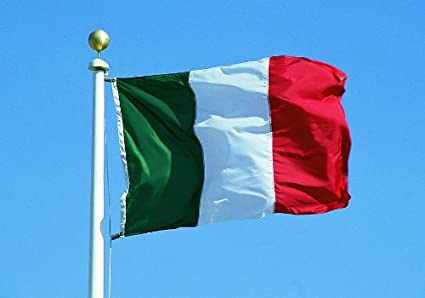
Study In Italy
Italy’s historic treasures and magnificent cuisine continue to draw visitors as they have done for centuries. From the snow-capped Dolomites in the North to the warm maritime Mediterranean culture of the South, Italy’s regions are diverse and exciting. For the international student seeking world-class but affordable education, with a wide range of social and leisure activities, few countries are as exciting a choice as Italy.
The country’s cultural importance extends back to ancient times and the past greets the student of history and archaeology on every street corner. For many, Rome is still the Eternal City, the centre of an empire that – some 2,000 years ago – stretched from rainy Britannia to the deserts of Syria. At its height it also encompassed Egypt, much of North Africa and nearly all of Continental Europe.
Italy’s Ancient Roman monuments, magnificent as they are, tell only part of the story. The Renaissance of the 14th to 17th century originated in Italy (as the Rinascimento) and sparked innovation and revolutions in art, architecture, philosophy, religion and the sciences across Europe. Intellectual activity and creativity flourished, carrying gems of ancient and medieval thought into the modern world.
The majority have suffered alteration in some form, by injected humour, or randomised words which don’t look even more slightly believable. If you are going to use a passage of Lorem Ipsum, you need to be sure there isn’t anything embarrassing hidden in the middle of text all the generators on the Internet.
Why Study In Italy
Italians are known to be welcoming, open people. You will make local friends quickly. And they will teach you that eating out and enjoying high-quality, healthy food are fundamental to la dolce vita (“the sweet life”) for every Italian.
Although you will get by with only a handful of words and phrases in Italian, English is not widely spoken outside the academic context, and you will definitely benefit from taking some lessons in Italian before and during your stay. That is especially true if you should decide to stay and work in Italy after graduation.
Cultural activities include everything from traditional local festivals to major international sporting events. Italian night life is always lively, especially in cities. In summer, the majority of people head for the sea or countryside. For quality of life, unforgettable, charming Italy provides value for any student.

Visa
A passport, its valid until date must be at least 30 days after the end of your degree
2 additional passport photos
An official letter of acceptance from your university
A clear criminal background check
Your flight details, including those of your return flight at the end of your degree
Proof of sufficient finances for tuition fees, living costs, and health insurance
Payment for your visa
Student visas are valid only for the duration of your degree. During this time, you are permitted to work up to 20 hours per week during term time. There are no work restrictions outside of term time. If your course requires you to take part in work experience that amounts to more than 20 hours per week, you will need to apply to the Department of Home Affairs to obtain permission. You will need to submit an offer of practical training, consent or confirmation from your university, and proof that you are still a registered student.


